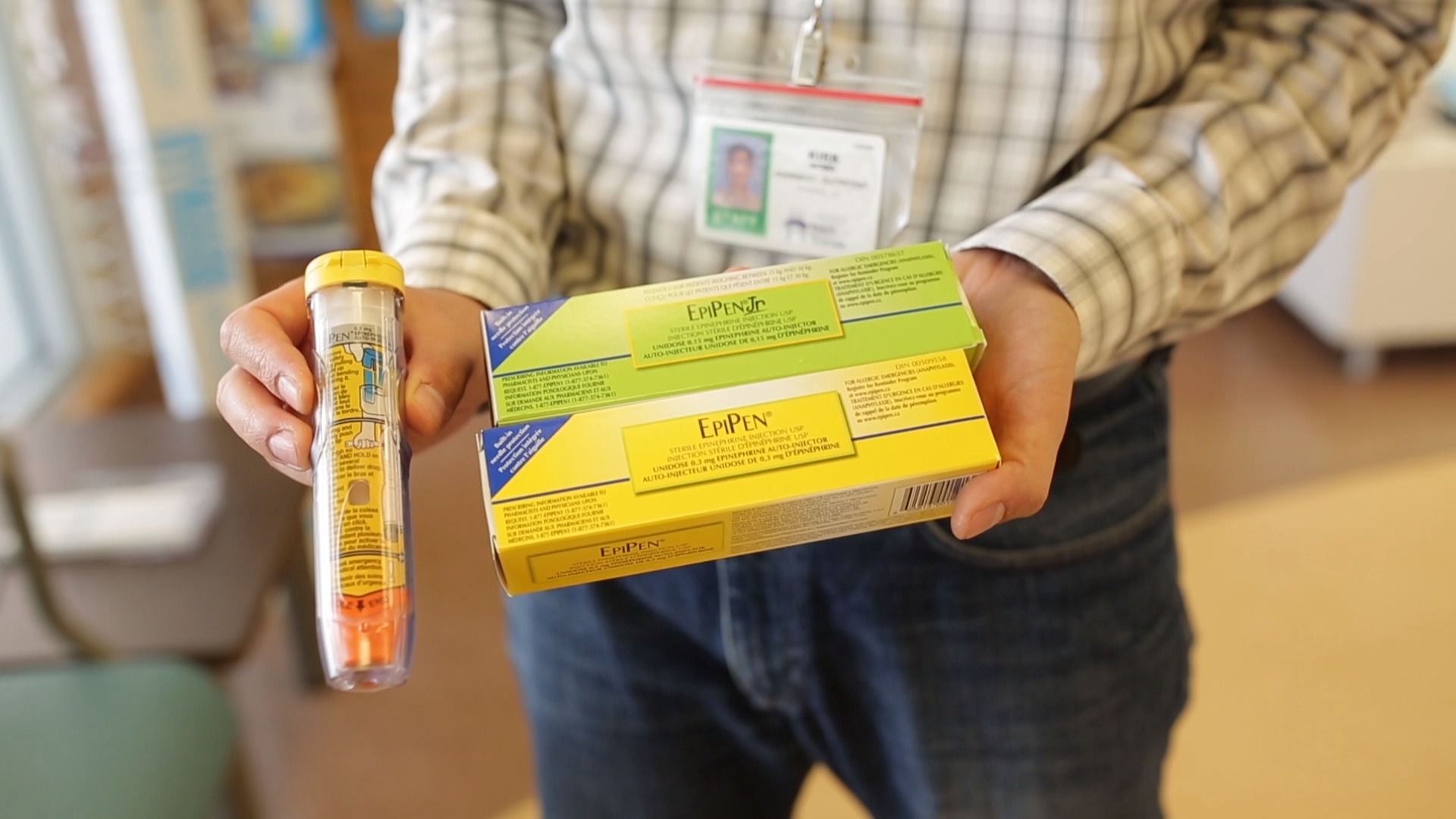McMaster Children’s Hospital nurse practitioner Alvin Gutierrez helps families with allergies transition back to school with these tips.
How to manage allergies at school
Food allergies are a growing public health concern in Canada. Common ones include peanuts, tree nuts, eggs, milk, seafood, sesame, soy, mustard, and wheat. It’s very important to be properly diagnosed by an allergist if you think your child is allergic to a food. An allergist will do the proper testing and help you understand your child’s specific allergy.
Food generally doesn’t cause an allergic reaction unless it’s ingested. But even tiny, invisible particles of food can get into the body and cause a reaction. The severity of the reaction can differ each time, which is why it’s important to avoid the food entirely. This can be challenging for children at school.
Tips for children old enough to understand their allergy
- Only eat food that has been brought from home unless it is packaged, clearly labelled, and approved by parents
- Wash hands with soap and water before and after eating
- No sharing of food, utensils, or containers
- Place food on a napkin or wax paper rather than directly on a desk or table
- Have your EpiPen with you at school
- Practice how to use an EpiPen with your auto injector training device
- Learn to recognize symptoms of an allergic reaction
- Tell your teachers if you feel you are having an allergic reaction
As parents, you can take additional precautions:
- Discuss your child’s allergy with their teacher and school principal, and confirm they know how to use an EpiPen
- Provide safe treats for the teacher to store for special occasions
- Ensure your child’s EpiPen is up to date and regularly practice with an auto injector training device
- Talk with your child about situations that may arise during the school year and how to respond (such as being offered food by another student)
- Ensure your child wears medical identification such as a medic alert bracelet
With the proper precautions, schools are safe places for food-allergic children!
National guidelines for Canadian schools for anaphylaxis management: Anaphylaxis in Schools and Other Settings

